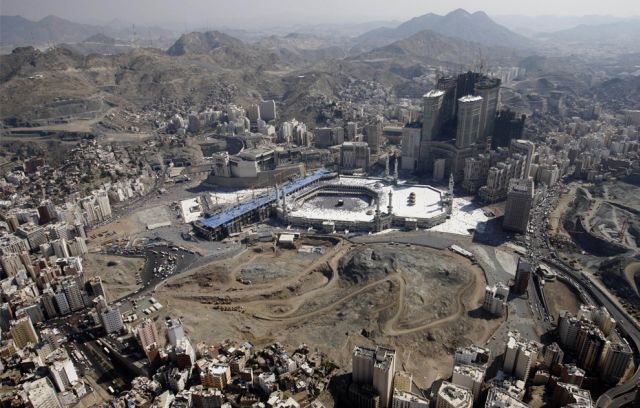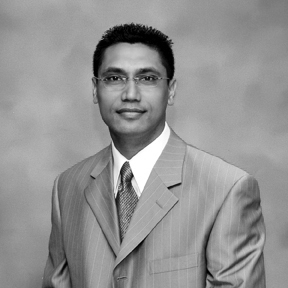Umrah & Hajj (Pilgrimage)
Allah’s Messenger Prophet Muhammad SW (peace be upon him) said: An ‘Umrah is an expiation for the sins committed between it and the next, and Hajj which is accepted will receive no other reward than Paradise. Hadith number in Sahih Muslim – 2403
The Hajj ( حج “Pilgrimage”) is an annual Islamic pilgrimage to Mecca, and a mandatory religious duty for Muslims that must be carried out at least once in their lifetime by all adult Muslims who are physically and financially capable of undertaking the journey, and can support their family during their absence. It is one of the five pillars of Islam, alongside Shahadah, Salat, Zakat, and Sawm. The gathering during Hajj is considered the largest annual gathering of people in the world. The state of being physically and financially capable of performing the Hajj is called istita’ah, and a Muslim who fulfills this condition is called a mustati. The Hajj is a demonstration of the solidarity of the Muslim people, and their submission to Allah. The word Hajj means “to intend a journey”, which connotes both the outward act of a journey and the inward act of intentions.
The pilgrimage occurs from the 8th to 12th (or in some cases 13th) of Dhu al-Hijjah, the last month of the Islamic calendar. Because the Islamic calendar is lunar and the Islamic year is about eleven days shorter than the Gregorian year, the Gregorian date of Hajj changes from year to year. Ihram is the name given to the special spiritual state in which pilgrims wear two white sheets of seamless cloth and abstain from certain actions.
The Hajj is associated with the life of Prophet Muhammad SW (peace be upon him) from the 7th century, but the ritual of pilgrimage to Mecca is considered by Muslims to stretch back thousands of years to the time of Abraham. During Hajj, pilgrims join processions of hundreds of thousands of people, who simultaneously converge on Mecca for the week of the Hajj, and perform a series of rituals: each person walks counter-clockwise seven times around the Ka’aba (the cube-shaped building and the direction of prayer for the Muslims), runs back and forth between the hills of Al-Safa and Al-Marwah, drinks from the Zamzam Well, goes to the plains of Mount Arafat to stand in vigil, spends a night in the plain of Muzdalifa, and performs symbolic stoning of the devil by throwing stones at three pillars. The pilgrims then shave their heads, perform a ritual of animal sacrifice, and celebrate the three-day global festival of Eid Al-Adha.
Umrah: Pilgrims can also go to Mecca to perform the rituals at other times of the year. This is sometimes called the “lesser pilgrimage”, or Umrah. However, even if they choose to perform the Umrah, they are still obligated to perform the Hajj at some other point in their lifetime if they have the means to do so.
Look out for my Complimentary Umrah and Hajj book, easy to understand real-life experience find it here 
Umrah & Hajj Agencies:
- Chicago Haj & Umrah: www.chicagohajj.com
- Dar El Salam: www.darelsalam.com
- Makkah tours: www.makkah-hajjpackages.com
- Mafaza Tours: www.mafazatours.com
- Dawn Travel: www.dawntravels.com
- Adam travel: www.adamtravel.com
- Sara International: www.sarainternationaltravel.com
- Travel net: http://afftravelnet.co.uk
- Maram Tours & Travel: www.maramtravel.com
- List of other Agencies: www.saudiembassy.net
- Islamic travel: www.islamictravel.com
- Go for Hajj http://go4hajj.com
Note: Effective Monday February 3rd, 2014, all passengers must furnish the ORIGINAL vaccination certificate for the Meningitis and FLU vaccine.
Disclaimer: We have no ties or recommendation to the above agencies (companies), they reported to provide good service, just wanted to make it easier for those who are planning for their first trip to the holy place.
 Radwan Chowdhury serves as the CEO of McWeadon Education. He was the founder and CEO of AA Global Solutions, a leading consulting firm and UDiON Foundation a global non-profit organization. Radwan is a motivational speaker, activist, author and an entrepreneur with nearly 15 years of executive management and consulting experience. Radwan believes “Education is the best way to end the cycle of poverty and the exploitation of children”. He’s “Dedicated to the Unfinished Work of Equal Opportunity and Justice for All”.
Radwan Chowdhury serves as the CEO of McWeadon Education. He was the founder and CEO of AA Global Solutions, a leading consulting firm and UDiON Foundation a global non-profit organization. Radwan is a motivational speaker, activist, author and an entrepreneur with nearly 15 years of executive management and consulting experience. Radwan believes “Education is the best way to end the cycle of poverty and the exploitation of children”. He’s “Dedicated to the Unfinished Work of Equal Opportunity and Justice for All”.


































































No comments